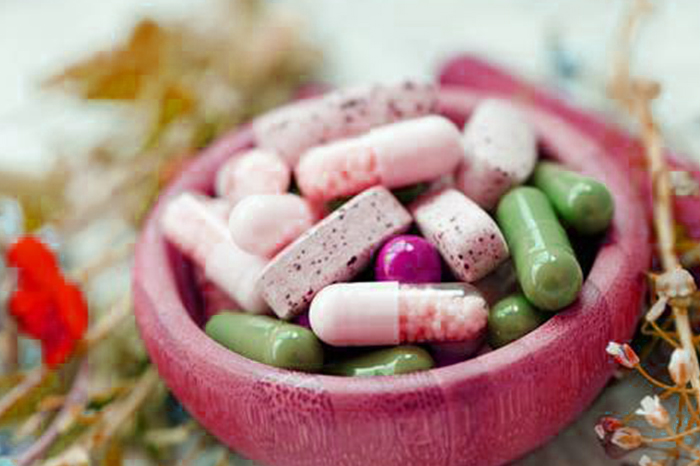The use of food additives containing herbal extracts is currently enjoying unprecedented popularity. Although they are natural products, it should be borne in mind that their unreasonable or improper use can also have side effects on human health – similar to conventional medicines. In particular, people who regularly take medications for a long time should consult with their doctor or pharmacist about the use of dietary supplements, since many of them can affect the basic treatment.
Interaction of medicines and plants
As we have already pointed out, the effects of drugs and supplements can interact. We professionally call these relationships interaction . The relationship between the active substances can be very complex, especially if patients take more than two medications/other products (and this is currently not special).
Interaction
There are several ways to influence the active substances contained in various preparations. May be:
Reduction or enhancement of the effect
Affecting the rate of decomposition of active substances from the body
Addition of adverse reactions to drugs
The interaction between drugs and medications should not be taken lightly, and indeed, the recklessness with which risks associated with over-the-counter medications are sometimes taken is inappropriate. An important article in preventing these risks is communicating with your doctor or pharmacist to help prevent potentially serious drug interactions. However, to a certain extent, the situation is in your hands – you just need to think about the problem of interaction every time you start taking more than one product, and openly communicate about the situation with professionals. If you are taking more than one medication, it is not recommended to carry a list of them with you.
In addition, it is necessary to follow the basic rules for the proper use of medicines and / or food additives, namely:
Always carefully read the information sheet on the packaging before use – the manufacturer should mention serious interactions.
Observe the recommended dosage and duration of treatment, respectively. do not exceed the recommended daily dose or the recommended duration of treatment.
Report the suspected side effects to your doctor, to the pharmacy or to the address indicated on the leaflet or on the product packaging.
If you buy nutritional supplements online, use reliable online stores.
The most well-known interactions between plants and medicines
To illustrate what such an interaction might look like, we have selected for you three favorite medicinal plants that are known to influence the action of certain medications. St. John’s wort clearly belongs to the well-known “masters of drug interaction”, we also included ginkgo and garlic, which are part of many dietary supplements.
St. John ‘s Wort
St. John’s wort (Hypericum perforatum), used for depressive states, is one of the most problematic medicinal plants in terms of interaction. Its stem is used, from which various infusions and decoctions are prepared, its extract is part of a number of drugs (medicines and dietary supplements). St. John’s wort accelerates the metabolism of many drugs in the body. Examples are drugs from the group of antiepileptic drugs. Reducing their plasma concentration to an ineffective level can lead to seizures in patients with epilepsy. Similarly, it is possible to radically reduce the effect of blood thinning anticoagulants used in cardiovascular diseases.
Conversely, St. John’s wort undesirably enhances the effect of other drugs that affect serotonin levels (some antidepressants, such as selective serotonin reuptake inhibitors, SSRIs), which can lead to the development of very severe serotonin syndrome (symptoms such as confusion, hallucinations, seizures, sudden changes in blood pressure, increased pulse, fever, increased sweating, muscle tremor, blurred vision, stomach cramps, vomiting and diarrhea) .
It is also worth mentioning the interaction of St. John’s wort with oral contraceptives containing ethinyl estradiol, which in combination with St. John’s wort threatens therapy, and St. John’s wort extract affects the pharmacokinetics of many other drugs, such as cytostatics or immunosuppressants. The most common side effects include nausea, anxiety, hypersensitivity to sunlight and related skin reactions or other skin problems.
Jinan dvoulaločný – ginkgo
Medicines containing ginseng extracts are used to treat dizziness, tinnitus, cold limbs, circulatory or heart problems, various types of dementia or depression. Its use is relatively safe, but in higher doses ginkgo can affect blood clotting, there are also cases of increased bleeding with prolonged use with nonsteroidal anti-inflammatory drugs (painkillers and anti-inflammatory drugs, for example ibuprofen) or convulsions in combination. with valproate (a drug intended for the treatment of epilepsy and bipolar affective disorder). It is also necessary to warn about the danger when some diuretics (medications used to dehydrate the body, used, for example, with high blood pressure) and psychotropic drugs are taken at the same time. Undesirable effects can rarely cause upset stomach, allergic reactions, headaches or increased bleeding.
Garlic
Garlic is popular not only in the kitchen, but also in healthcare. In the form of dietary supplements, it is used to support natural defenses, is one of the antioxidants, supports blood circulation, is used for feeling heavy in the legs, and also contributes to normal liver function and general mental well-being.
Unfortunately, even such an ordinary plant as garlic cannot be considered completely safe. Garlic enhances the effect of drugs on blood clotting, reduces the effect of HIV antiviral drugs, and interaction with medications with high blood pressure is also reported. Its excessive use is associated with adverse effects on digestion, allergic reactions, increases the risk of bleeding in the gastrointestinal tract, sensitivity to sunlight has also been reported.
Feel free to ask for advice
As you can see, there are few interactions between medicines and herbal supplements, and therefore the use of herbal preparations from the category of dietary supplements should be approached carefully, carefully and responsibly. Professionals, whether they are your doctor, pharmacist or pharmacist’s assistant, will be happy to help you in case of uncertainty.

Leave a Reply